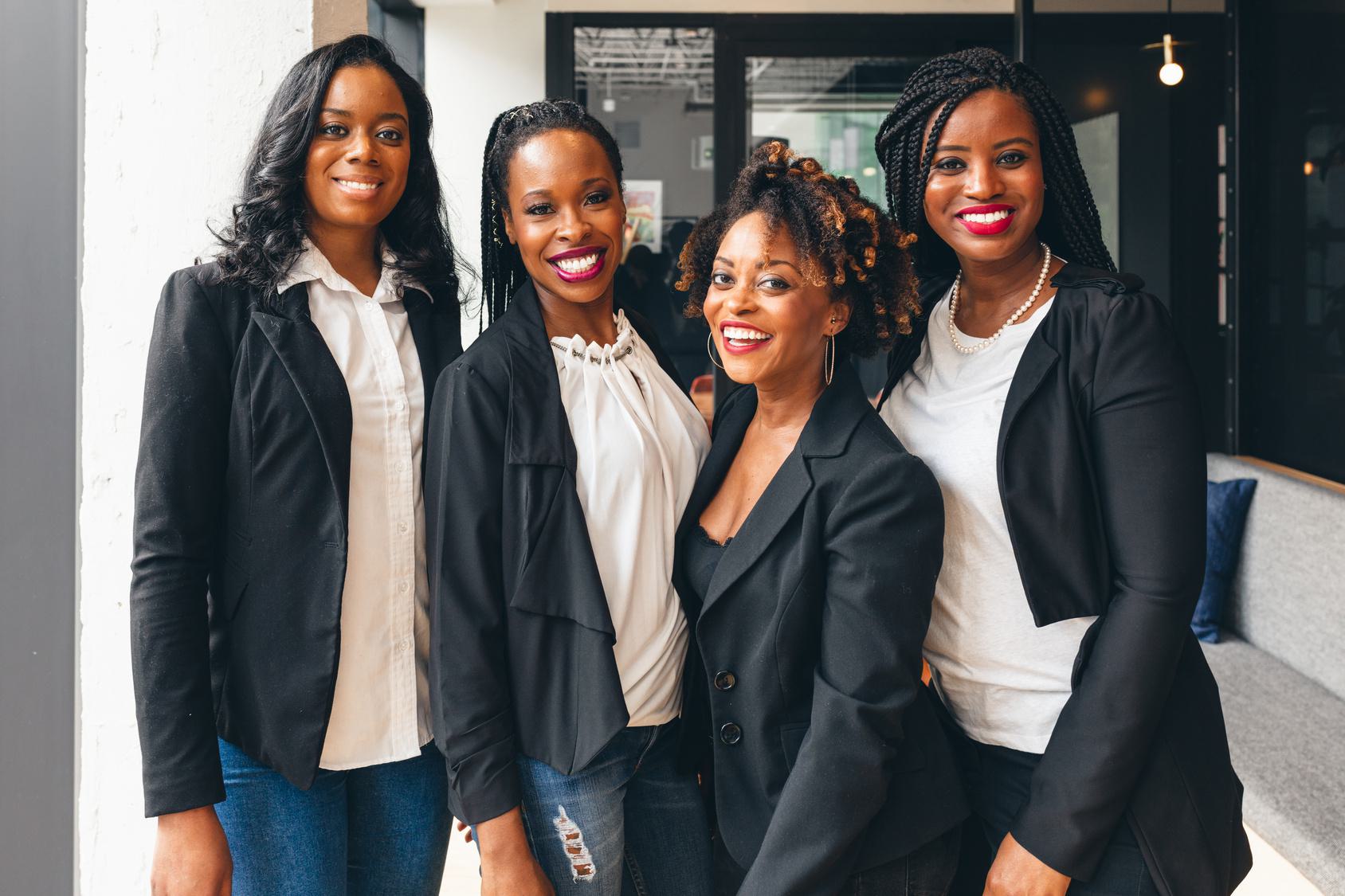
Empowering Black Women: Breaking Barriers with Return-to-Work Programs

By Janet Peterson and Nikki Steingold
In the dynamic landscape of today's workforce, career breaks have become more common than ever. They're not just a pause in one's professional journey but rather pivotal moments that can shape the trajectory of one's career, particularly for Black women. According to a revealing LinkedIn survey, 75 percent of Black women professionals in the United States have experienced a career break at some point.
While career breaks are a universal phenomenon, returning to work after such a hiatus poses unique challenges and barriers for Black women. These obstacles often stem from systemic biases, financial constraints, and a lack of support systems. In this blog, we'll delve into the experiences of Black women navigating career breaks, the hurdles they face upon re-entry, and the transformative role return-to-work programs can have in reshaping their professional landscapes.
The Reality of Career Breaks for Black Women
Black women do take career breaks but because of financial reasons, these numbers differ by comparison of other ethnic groups. Consider this: Nearly 80% of Black women are breadwinners for their families, which means their households rely heavily on their salaries to sustain their households compared to other demographic groups. In Georgia, Black women still earn substantially less than their white male counterparts, with a staggering 59 cents earned for every dollar earned by non-Hispanic white men.
Career breaks among Black women are not just about taking time off for personal reasons; they're often deeply intertwined with broader societal issues. Research underscores that Black women are more likely to take career breaks due to caregiving responsibilities, workplace discrimination, and chronic stress. Discrimination during the hiring process, evidenced by biases against cultural names[1] and hairstyles[2], further compounds these challenges. It's a reality where Black women often feel compelled to alter their authentic selves to conform to workplace norms[3], perpetuating imposter syndrome and undermining their leadership potential.
Navigating the Return: Challenges and Barriers
Returning to work after a career break is far from seamless for Black women. Discrimination, wage gaps[4], lack of support systems, and financial constraints loom large, making the transition back into the workforce daunting. Moreover, the phenomenon of "downshifting," where Black women are compelled to settle for roles below their qualifications, underscores systemic barriers that impede their professional advancement.
The "Pet to Threat" syndrome, identified by Dr. Kecia Thomas, illuminates a troubling dynamic where early career support for Black women diminishes as they assert their agency and authority. This phenomenon underscores the urgent need for inclusive workplace cultures that foster genuine support and equitable opportunities for advancement.
Building the Pipeline: Leveraging Community Support
Leveraging community support within the Black community emerges as a potent strategy for empowering Black women in their return-to-work journey. iRelaunch Diversity Lead and Atlanta resident Janet Peterson, suggests, “joining Black job seekers' networking groups, learning the game of golf, connecting with church life groups or venues like “The Gathering Spot” where Black people connect, tapping into the expertise within Black sororities, fraternities professional organizations and your college alumni chapters by seeking mentorship from seasoned professionals to find invaluable support and guidance to help Black returners navigate the return-to-work journey.”
Do Your Due Diligence Before Applying
Ms. Peterson suggests conducting thorough preliminary research as Black women embark on their journey back into the workforce. Before making any commitments, Black women must delve into the company's website and diversity statement. “It’s even better if someone in your network currently works within the organization to understand the unwritten internal culture,” she adds. Key questions to consider include: Does the company boast a robust Black women's Employee Resource Group (ERG)? Are they transparent with their salary range in the job posting? Is the leadership team diverse, reflecting inclusivity at the highest levels? Does the company prioritize the professional development of women of color (WOC), and do they hold accolades from respected organizations like 360 Lead (formerly Diversity Inc.)?
In cases where there are no existing connections within the organization, reaching out to employees via LinkedIn for informational interviews can provide invaluable insights. Furthermore, it's essential to remain vigilant against accepting low-ball salary offers, toxic workplaces, and situations that are lacking in professional development and growth prospects.
Empowerment Through Return-to-Work Programs
Amidst these challenges, return-to-work programs emerge as beacons of hope, offering tailored support and pathways for Black women to reignite their careers. Forward-thinking companies with robust Inclusion and Belonging strategies have the potential to play a pivotal role in dismantling barriers and building pipelines for Black women's success. These programs not only provide opportunities for career re-entry but also foster a culture of inclusivity and belonging for women of color.
Jo Anna B. Thomas, Network Jo Strategist, Coach, and Speaker, says, “To help attract and retain women of color, return-to-work programs must realize the unique job-search experience and offer equitable experiences with equitable comprehensive compensation packages. A woman of color has a unique experience during the job search and interview process that should be recognized and navigated with tools and resources. Return to work programs should do more partnering with organizations and hiring managers to promote impartial interviewing experiences and inclusive work cultures.”
Ms. Peterson also notes that while many Black women may not have the luxury of taking a 1-2 year career break which is the common return-to-work program requirement, relaunchers should still consider reaching out to these organizations and employers should still seek to hire from the talent pool of highly qualified underrepresented women of color.
“Companies that have strong return-to-work initiatives are typically more forward thinking in their hiring practices and are more likely to entertain your resume because you may have a gap even if they don’t have a traditional return-to-work program. These companies partner with iRelaunch because they want to hire high-caliber, highly educated women of color in leadership roles,” Ms. Peterson notes. “Leverage your LinkedIn network to identify who’s already working within these organizations and follow these ‘forward-thinking companies’ on social media,” she adds.
Addressing the Challenge: A Call to Action
“Women of color face social inequalities daily, inside and outside of the office,” Ms. Thomas says. “A program to help one return to work must recognize these challenges and provide not only support back into the workplace but a community for continuous networking and resources that focus on career advancement. The goal should be creating a community harnessing support and opportunities for advancement.”
Danaé Aicher, National Director of Advocacy and Public Policy, Mocha Moms, Inc. adds, “For Mocha Moms, in particular, programs like iRelaunch are so important. Many of our Moms took time away from successful careers and leadership positions to focus on our families. We need programs, and the companies that partner with them, to really understand the high caliber of professionals we are, and the qualifications, experiences, as well as the unique and useful perspectives we bring to the table.”
Breaking barriers and empowering Black women in the workforce demand collective action. Employers must adopt forward-thinking policies, such as flexi-time schedules, robust mentorship and advocacy programs, a commitment to reduce the equity in pay gaps, and unwavering support for the career aspirations of Black women. Additionally, fostering partnerships with organizations like iRelaunch can amplify access to support networks and resources crucial for navigating career transitions.
Creating Inclusive Workplaces
Returning to work after a career break should not be daunting, but a transformative opportunity for Black women to reclaim their professional narrative. By addressing systemic barriers, fostering inclusive workplace cultures, and championing diverse talent, we strive to ensure that Black women have equal opportunities to thrive and excel in their careers.
[1] According to a case study by SHRM, applicants with white-sounding names were 50% more likely to be contacted for job interviews than those with typical black names. There were no significant differences between the rates at which men and women were contacted. Concluding that employers and hiring managers treat applicants with African American-sounding names much differently or appear to react negatively towards them.
[2] The CROWN Coalition, which advocated for the CROWN Act or Creating a Respectful and Open World for Natural Hair Act, said in a 2023 report that Black women’s hair is 2.5 times more likely to be deemed “unprofessional.” In a survey for that report, put together in partnership with Dove, the majority of Black women told researchers that they changed their hair for a job interview; the change for many, specifically, was straightening their hair. About one in four Black women said they believed their hair was the reason they were denied a job interview.
[3] In a Feb 1, 2024 USA Today article, nearly 40% of Black respondents in an Indeed survey indicated that ceasing code-switching could result in adverse effects, such as receiving unfavorable performance evaluations or encountering reduced opportunities for career progression. Black women have reported how exhausting this task is in the workplace.
[4] In “Black Women and the Wage Gap” by the National Partnership for Women and Families, a table entitled. “The Wage Gap in the 25 States with the Largest Number of Black Women Working Full Time, Year-Round” shows that in the 25 states (including the District of Columbia) with the largest numbers of Black women working full time, year-round, pay for Black women ranges from 45 to 64 cents for every dollar paid to white, non-Hispanic men in those states.



